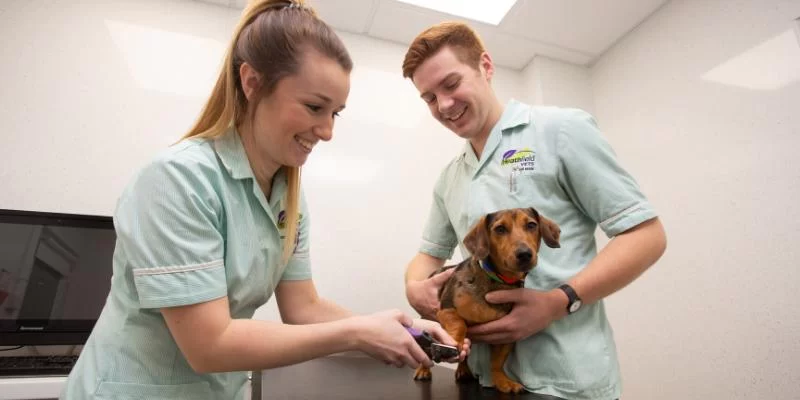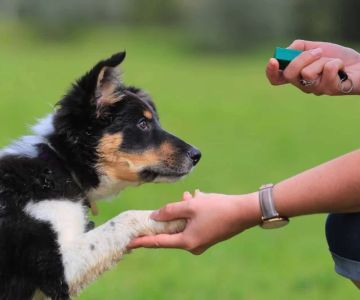Do Student Veterinary Nurses Get Paid?
As a student pursuing a career in veterinary nursing, one of the most common questions asked is whether student veterinary nurses get paid for their work. Becoming a veterinary nurse is a rewarding yet challenging path, and understanding the financial aspects of the journey is crucial. In this article, I’ll walk you through the pay structure for student veterinary nurses, the types of roles available, and what you can expect in terms of compensation during your studies.
1. The Role of a Student Veterinary Nurse
A student veterinary nurse is someone who is undergoing formal education and training to become a fully qualified veterinary nurse. This includes a combination of classroom instruction and practical, hands-on training within a veterinary practice or hospital. The duties of a student veterinary nurse are similar to those of a qualified nurse but are supervised by licensed professionals as they work towards obtaining the required certification.
While student veterinary nurses are still in the training phase, they perform a range of tasks, including assisting with surgeries, providing general care to animals, monitoring patients, and helping educate pet owners about healthcare. This practical experience is essential for their future careers, and many veterinary schools require a certain number of hours in the field to qualify for certification.
2. Are Student Veterinary Nurses Paid for Their Work?
The question of whether student veterinary nurses get paid depends on the type of position they hold and where they are in their training. Typically, there are two types of student veterinary nursing roles: paid and unpaid internships.
- Paid Internships: Some veterinary clinics or hospitals offer paid internships or placements to student veterinary nurses. These paid positions may be available during specific training periods, such as summer breaks or as part of a structured internship program. The pay varies by location, the veterinary facility, and the level of experience of the student.
- Unpaid Internships: Many veterinary schools offer unpaid internships, where students gain invaluable hands-on experience but do not receive a salary. However, some schools offer stipends or financial assistance to help students cover basic living expenses while they complete their training.
Generally, the pay for student veterinary nurses is lower than that of fully qualified veterinary nurses, as students are still in training. However, the real value of these internships is the experience and exposure to different types of veterinary care, which can significantly enhance future career opportunities.
3. What Is the Average Pay for Student Veterinary Nurses?
The average pay for student veterinary nurses can vary greatly depending on their location, the type of clinic or hospital, and the specific responsibilities they are given. In the United States, the average salary for student veterinary nurses generally ranges from $10 to $15 per hour for paid positions. This amount may increase if the student has advanced training or specialized skills.
However, it is essential to note that these figures are subject to change based on the region, the veterinary facility, and the individual student’s experience. Some high-demand areas, such as urban centers with a greater number of veterinary practices, may offer slightly higher pay rates. Additionally, some prestigious veterinary schools may provide more generous stipends for their internships.
4. How Do Paid and Unpaid Internships Differ for Student Veterinary Nurses?
While both paid and unpaid internships are valuable for gaining experience, they come with different financial implications for students. Let’s take a closer look at the differences:
- Paid Internships: Paid internships provide students with financial compensation for their work. This allows students to support themselves while gaining practical experience. These internships are often structured programs where students are given a salary based on the industry standard or specific agreements between the student and the veterinary practice.
- Unpaid Internships: Unpaid internships, on the other hand, provide experience without financial compensation. While these internships are valuable in terms of professional development, they can be financially challenging, especially for students who need to cover tuition fees and living expenses. Some schools offer scholarships or stipends to help with these costs.
It’s essential for students to carefully evaluate the benefits of each type of internship. Although unpaid internships might seem financially challenging, they often provide access to a higher level of hands-on experience and exposure to specialized areas of veterinary care.
5. Financial Considerations for Student Veterinary Nurses
For student veterinary nurses, managing finances during their studies is a crucial aspect of their education. While paid internships can help alleviate some financial strain, many students opt for part-time jobs or scholarships to support themselves during unpaid internships. Additionally, many veterinary schools have financial aid programs, which can be invaluable for students pursuing unpaid internships.
It is also essential for students to consider the long-term investment in their education. Although student veterinary nurses may not make a high income during their training, the experience they gain during internships is an investment in their future career. Once qualified, veterinary nurses can earn significantly more, with salaries ranging from $35,000 to $70,000 per year, depending on experience, location, and specialization.
6. How to Make the Most of Your Internship Experience
Regardless of whether the internship is paid or unpaid, it’s essential for student veterinary nurses to make the most of their experience. Here are some tips to maximize the value of your internship:
- Take Initiative: Volunteer for tasks and responsibilities to show your enthusiasm and commitment. The more you can learn and do, the more experience you'll gain.
- Seek Feedback: Regularly ask for feedback from mentors and supervisors to improve your skills and performance.
- Network: Building professional relationships with veterinary staff and fellow interns can open doors to future job opportunities and collaborations.
- Document Your Experiences: Keep a record of the skills and knowledge you gain during your internship, which will be useful when applying for full-time positions later on.
By making the most of your internship, you’ll not only gain practical experience but also establish yourself as a valuable asset to veterinary teams, which can lead to job offers after graduation.












